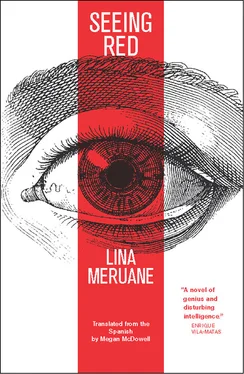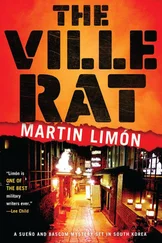recognition
Lucina, I said to him, and I reached out my hand to the air and to him, because I knew he’d already forgotten me. He always forgot, in spite of our unhappy and almost historic adventures through consulting and operating rooms. Lucina, doctor, I know you won’t remember, I said, promising myself I would make him remember me. Lowering his voice impossibly, Lekz asked me to forgive him, it wasn’t me he forgot. It was everyone. Much as he struggled, he watched them enter his office and he didn’t have the slightest idea who they were, that’s what he told me, clearing his throat continuously, the magnifying lens raised before my eyes but still without examining me. With his hand suspended in the air, he confessed that patient after patient would come in and he would greet them all by name, something he’d learned to do mechanically. Greeting them as though he knew them was part of the job. A matter of checking the list that the diligent Doris left typed up for him on the table. Hi Peter. Step inside, Gary. How are you, Ms. Smith, nice to see you. And so they went, entering one after the other, to detail their optical difficulties: one hemorrhage, torn retina, glaucoma, or macular degeneration after another. Such everyday things that they gradually became indistinguishable. After so many years, the names became insufficient too. They don’t say anything to me anymore, he said, effortlessly raising his thick gray eyebrows, wrinkling his brow, aging a century. Their voices say absolutely nothing to me, their faces either. They talked without seeing him, I thought, he looked at their faces without recognizing them. They all seemed discreetly familiar, each one of their gestures, their inflections, generated a fleeting glimmer, a pulsation, a throbbing in the cerebral cortex that never congealed into a memory. Nor did the clinical histories tell him anything, because he was unable to decipher his hieroglyphical notes from previous visits. Like an illiterate lost in an excess of signals, he faced them all, every day. But he sat them down and his lens prepared to read the full story of every eye. On that surface each patient’s identity was revealed to him: as he peered into them, he remembered details. He even remembered the order of his enlightenments. But no, it’s not remembering, Lekz specified as he instructed me to lean my head back; it’s not exactly looking back or recalling. Lean further, he repeated, forcing his voice while he lifted my eyelid to begin the exam and immerse himself in my wide, dilated pupil. It’s not a memory, it’s recognition. Because inside, but also outside, all the eyes were different and now they all had his signature. In spite of the emergency, Lekz sounded faraway when he repeated his passwords: up, first, up and to the right, to the side. All the way. A little down and now all the way down. My neck turned ritually on its axis. And following that circular tour, Lekz lit up the whole perimeter of my retina with that strongest of all magnifiers. I waited for him to tell me what he saw there, what image of me was emerging from the depths of my eye. What did his diagnosis say about my life? What’s happening with my eyes, doctor? Ah, he said, lengthening the a in the voice of an oracle or iridologist or simply a charlatan oculist. These retinas are my masterpiece.
veins
But your artwork came out crooked, I said, exasperated but above all astonished at what he hadn’t seen. Crooked? You didn’t look hard enough, doctor. Lekz cleared his throat as if his years as a smoker were handing him the bill right there. It’s another hemorrhage. Don’t worry, muttered Lekz uneasily, grabbing a handful of his hair and pulling at it gloomily; bleeding a little isn’t so strange after an operation, he said. It’s nothing unusual, he repeated, there’s no cause for alarm. He insisted on calm, talking between his teeth before falling silent, shielded by his magnifying lens. His was not just any silence; it was a silence that emanated from his body. Lekz had stopped breathing. I had also given up on breathing. I was deciding to suffocate myself. It was so much silence that we — and not only us, the people in the waiting room, too — could have disintegrated, the world could have disappeared and taken Ignacio with it. I thought of him with dismay, I wondered about his anxious decision to stay outside. He’d announced it firmly, though at the last second he changed his mind and walked to the door with us. Lekz closed the door in his face. Ignacio must have returned to his chair; he’d be feverishly turning pages of magazines without paying an ounce of attention. Lekz separated his lips, his mouth sucked in air and inflated his infirm lungs, and he interrupted my silence with his words. There’s been a slight flaw. A flaw or a surprising imperfection, it’s true, he admitted. I don’t know how I didn’t see it before now, he murmured with premonitory bitterness. He was so close I could hear his nails scratching his neck, the vein throbbing at his throat. He took off the metal headlamp and explained falteringly that he’d left some ringleted veins uncut, some veins just in the center of the left eye. I left them there, he repeated, punishing himself with the repetition. I was convinced that. I thought. Maybe he was lying to himself and rubbing his eyelids, maybe it was true that in those hours he’d gotten all the veins. And if these were new ones? Veins from these past few days? Lekz was more alone, tenser and darker than his own shadow. I’ve never seen this before, but it’s possible one of my colleagues has. Or several. Or all of them. They can take a look at you. Our clinical meeting is this afternoon. That way we can be sure. I studied his post-Soviet grimace with my double and wobbly vision while he told me that I wouldn’t be asleep, only stunned with a touch of anesthesia. You won’t feel a thing, he promised, while he peered out into the waiting room and asked Doris to reserve a time in operating room four. You’re going to operate on her right now, doctor? said Doris in a sigh, although on the inside what she did was moo over the accumulation of simultaneous tasks. But she was a woman trained to moo at the world and lick the hand of a single man, her owner. Right now, Doris, the clinical operating room, bring in the associates for an outpatient check-up, murmured Lekz with the gentleness of all true masters.
disappearances
The city disappears, the hospital opens its doors and I disappear too, without saying goodbye to anyone amid its forms and fluorescent-lit hallways. This time I have an express ticket, and I use it to enter an operating room stuffed full of eye doctors of varying sizes and shapes, all distorted and a little double. I can halfway make out when Lekz appears in his green suit among the others wearing the same disguise. I halfway realize that they’ve all finished their morning surgeries but have stuck around to witness, along with Lekz, the mystery of my veins. I also half-hear their anecdotes, their condolences, their political comments, but I feel nothing. Nothing, either, when they announce the hit of liquid anesthesia. I only ask that the effect last longer than this collective violation, and much as I hate being manhandled, I decide to give in. I close my eyes for an instant so Lekz can open them again for me in a little while. And now they’re open, little by little. I hear other people’s voices, nearby conversations that I retain but only halfway. Someone utters the word vein and someone else repeats it until they make it disappear. Someone uses the word proliferation. Someone uses the phrase hormone-aided growth. If she were a man this wouldn’t have happened. I know that someone else peers over me and I think something about something, but what? There are bloody words everywhere. I know they are discussing my fate but I know I’m not sure what they’ve decided, and a sip of water reaches my mouth in the recovery room and then tea and bland crackers in a common room full of people. There are no eye doctors, no nurses, no Ignacio. I’m waiting for him to appear and go home with me. They won’t let me leave on my own, I could keel over, I could sue them for damages; I’ll have to stay here another night because Ignacio has disappeared. He’s not going to come tonight. Maybe not tomorrow. You’re never going to come back, Ignacio, is what I say to myself before my blackout.
Читать дальше












